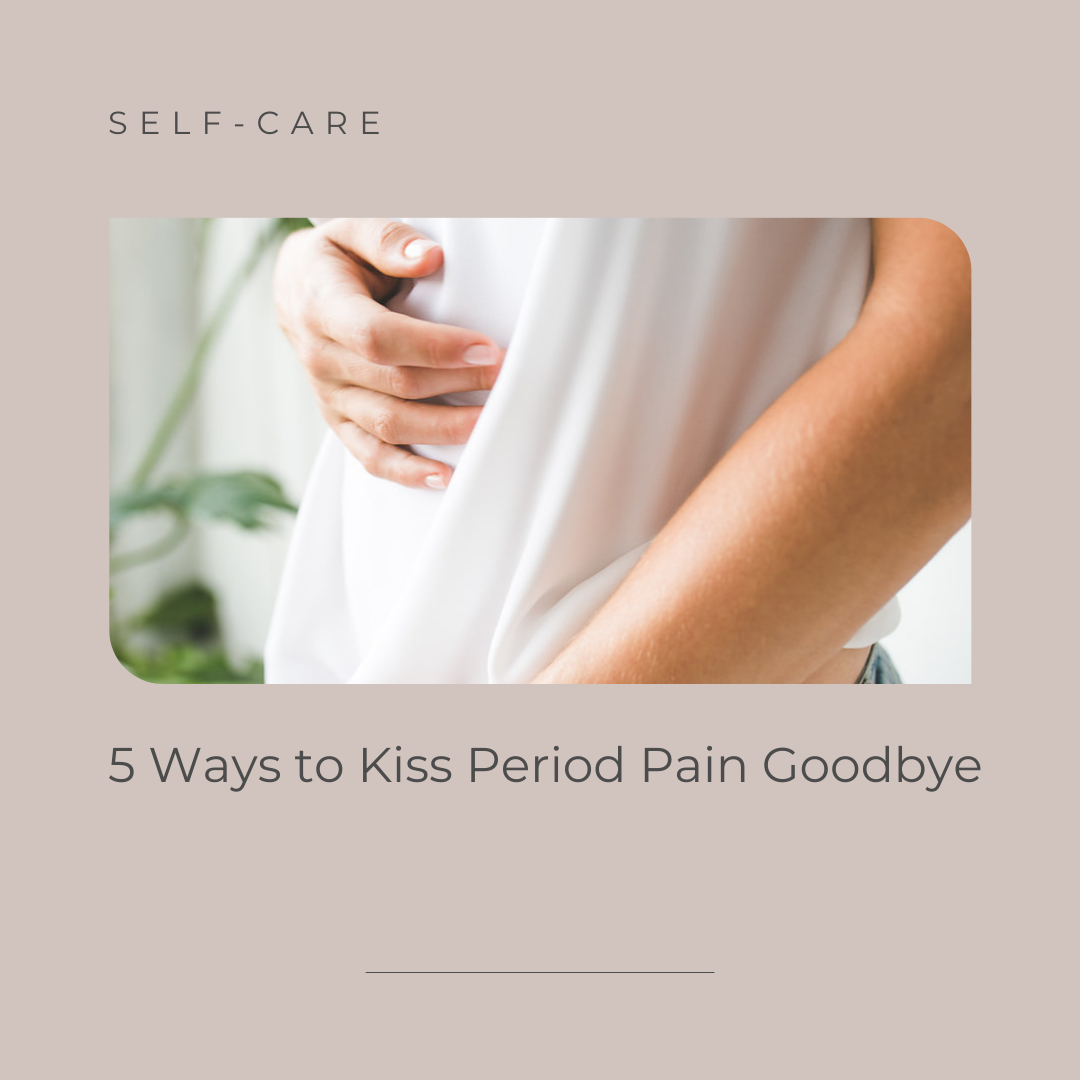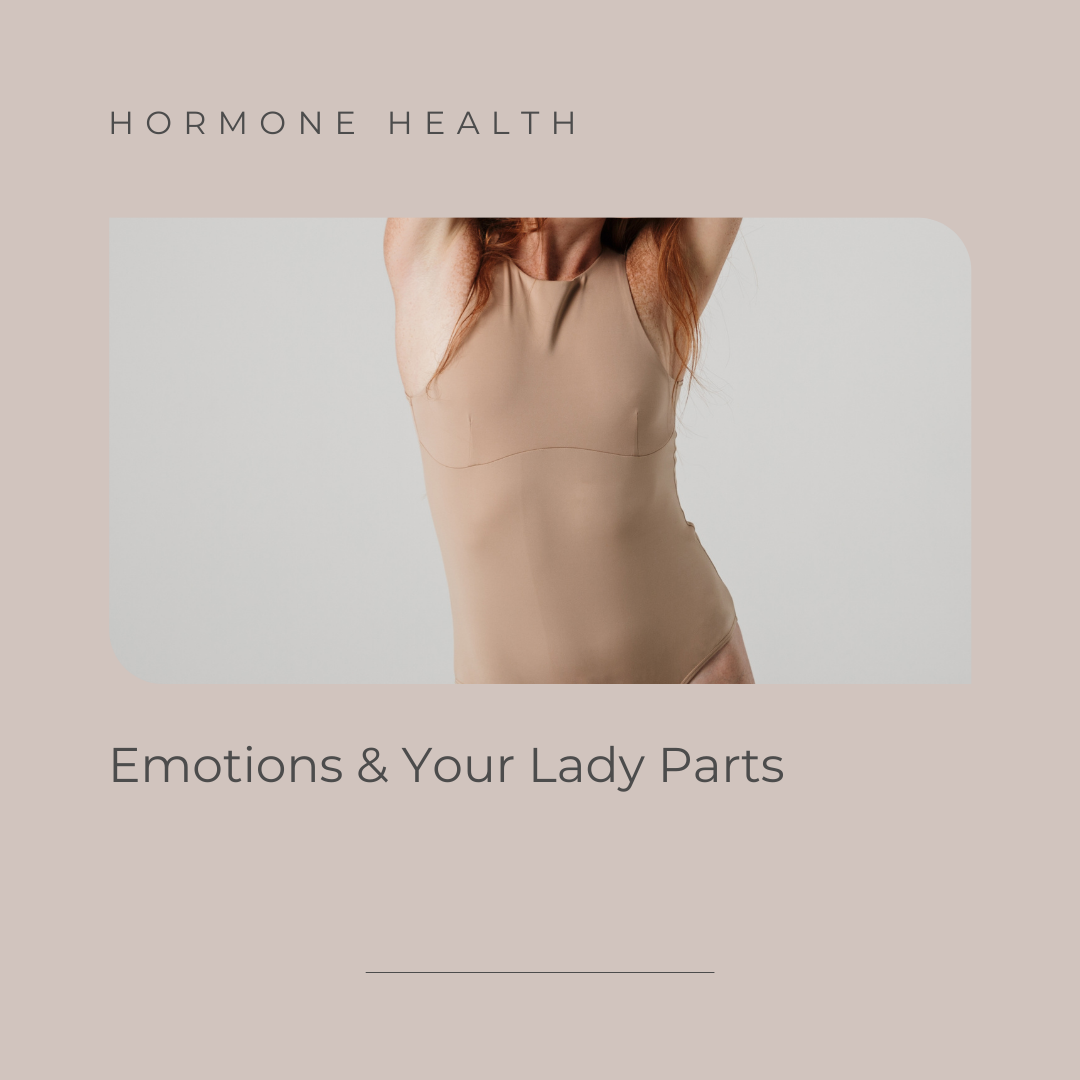I remember it so clearly.
Almost 4 years ago, in March of 2014, I was in the middle of a move to Toronto.
I was standing in the elevator of my boyfriend's apartment when I got accidentally elbowed by a lady holding her child.
The tenderness that shrieked through my breasts was so unbearable, I felt it in my bones.
I remember that was the first of several consecutive cycles that I experienced breast tenderness just before my period.
But— I have to admit, this was also a time in my life when I was really good at learning about self-care and seriously sucked at the implementation.
I slept an average of 5 hours a night, drank 4 cups of coffee a day, binged on so-called "healthy" sweet treats and followed what I now know to be the vegan-junk-food-diet.
It took me a few more years of radically revamping my lifestyle to finally know that breast tenderness (the way I experienced it) was not normal.
Here's what you need to know about breast tenderness and how it relates to your hormones.
Cyclical breast tenderness is a common PMS symptom we can experience just before our period. It can include pain, sensitivity, tenderness or tightness in the breast tissue.
As you know, our hormones rise and fall during a normal menstrual cycle. Breast tenderness is related to a surge of estrogen beyond normal levels and causes the breast ducts to enlarge.
While occasional breast soreness and swelling may be normal, research confirms that chronic cyclical breast tenderness puts us at risk for more serious hormonal health issues in later years, plus it's super uncomfortable to experience all the time.
The good news is that diet and lifestyle are proven to successfully prevent breast tenderness.
If you experience painful or sore breasts before your period, here are 5 dietary/lifestyle tips to help a girl out.
Up your Fatty Acids
Research confirms that 3,000 mg of evening primrose oil (EPO) daily can decrease breast tenderness. EPO contains anti-inflammatory gamma-linolenic acid (GLA) which are fatty acids that prevent the release of prostaglandins and help to reduce tenderness in the breasts.
Limit Xenoestrogens
Studies on Xenoestrogens show they mimic estrogen and disrupt normal estrogen signalling in the body. As much as possible, try to avoid using plastics (especially with BPA) and limit your exposure to pesticides by buying organic foods.
Take Vitamin E
Daily doses of 1,200 IU of vitamin E has been proven to decrease breast tenderness according to one study. Vitamin E is an antioxidant and helps reduce inflammation in the body.
Watch your Caffeine Intake
While there are differences in individual sensitivity, caffeine depletes vitamin and mineral reserves, dehydrates the body, and contributes to hormonal imbalance.
If you are an avid caffeine drinker and you experience breast tenderness you may want to think about limiting your consumption or quitting completely.
De-Stress
Stress affects cortisol levels and in turn affects our sex hormones. Stress is inflammatory to the body and can exacerbate breast tenderness.
Try to identify and eliminate the major stressors in your life so you can have better control over your mental/emotional health. Engage in regular relaxation practices to shift your body out of stress response.
Always remember, knowledge is good, but implementation is everything!
Much love and Lady Flow care,
Elaine Clark, nutritionist, writer, women's health pioneer, and founder of LADYFLOW. Elaine is creating a movement of women living in sync with their hormonal wisdom and creativity. Elaine works with health conscious women to feel at home in their body and awaken to their creative potential. She offers a variety of tools to support women with her workshop offerings, retreats, and wellness products.













